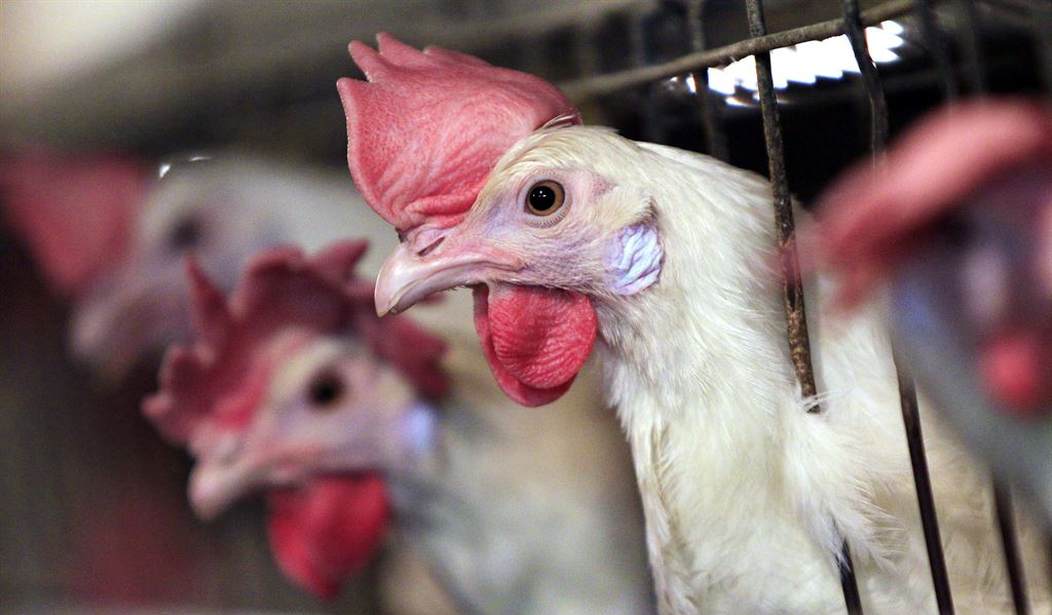File this under: "answers to questions we never asked," but it turns out that humans, with a little bit of cluck, can learn to communicate with everyone's favorite barnyard fowl.
A recent study in Royal Society Open Science shows that humans can intuitively pick up on basic chicken emotions—excitement and discontent—by the sound of their clucks alone. Nearly 70 percent of people could match the cluck with the correct emotion regardless of their previous experience with chickens, or lack thereof. This research reminds us of humans’ innate connection to other beings, and our ability to pick up on universal signs of happiness and distress, says coauthor Joerg Henning of Australia’s University of Queensland. “This is a remarkable result and further strengthens evidence that humans have the ability to perceive the emotional context of vocalizations made by different species,” said Henning in a press release.
No, I'm not pulling your feathers -- the coauthor of this study is indeed named Henning. But that's neither here nor there; I'm sure his qualifications are im-peck-able.
In the interest of confirming this for myself, before writing I took myself hither to our neighbors, who keep a small flock of laying hens, and spent some time trying to commune with the birds. This time of year, they aren't laying many eggs, and won't be for a few more weeks - they are spring chickens - and so I figured they would have some time to chat. Imagine my disappointment when they weren't interested in setting around, chit-chating with a human.
Still, it beaked my curiosity, so I went down to the local high school (the university at Fairbanks was a little farther than I cared to leg it to this time of year), and asked a science teacher if they had any knowledge of this idea. The teacher, who spoke on condition of anonymity, was pretty sure any student would be egg-spelled for bringing up such an idea in class. So, I came away from that line of inquiry no further ahead; I was hoping for at least an hen-orable mention, but our local birds weren't about to coop-operate. But that is, all too often, how big ideas work out; the bigger they are, the harder they fowl.
But then, human-bird relations aren't always smooth.
See Related: Wild Turkeys Cut Power in Sacramento - For Once, a Power Outage Isn't Gavin Newsom's Fault
Iowa Pilot vs. Duck: Iowa Pilot 1, Duck 0
But you can say this for the troublesome fowl: They are poultry in motion. Residents of Chicken, Alaska, were unavailable for comment.
While one might have great eggs-pectations from research like this, it's important to note that Man's Best Friend, with whom humans have been communicating very well for millennia, also has a history of communications with chickens that goes back quite a way as well.
It's not that these birds don't have their human advocates, communications or not.
See Related: Alec Baldwin and PETA Need to Shut the Hell Up
I confess this whole episode nearly drove me to an eggs-istential crisis. But as I am not one to be easily deterred, I will continue my research with the local chickadees and juncos. Watch this space for updates. If you miss it--well, then the yolk's on you.
This seems appropriate.














Join the conversation as a VIP Member